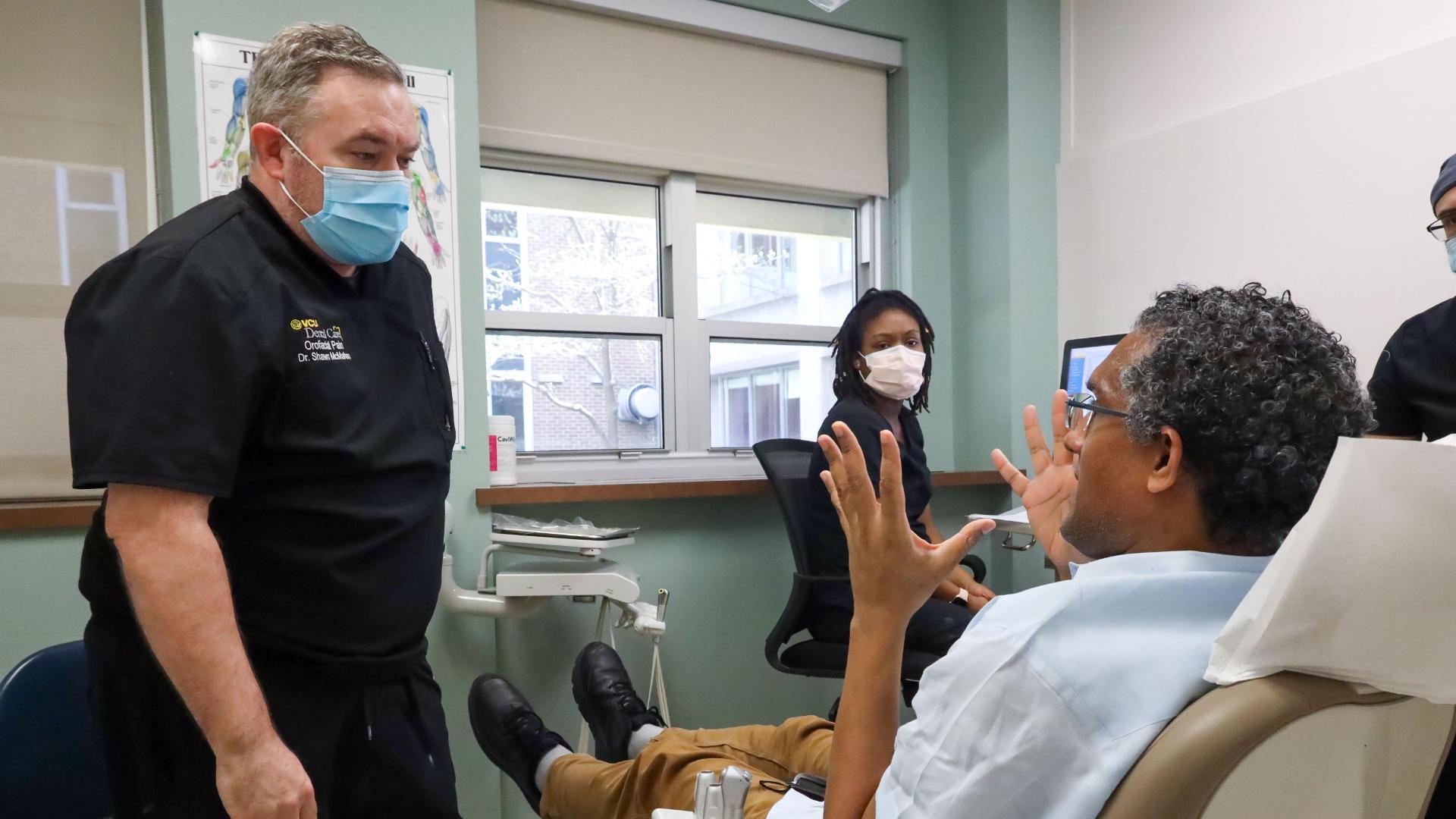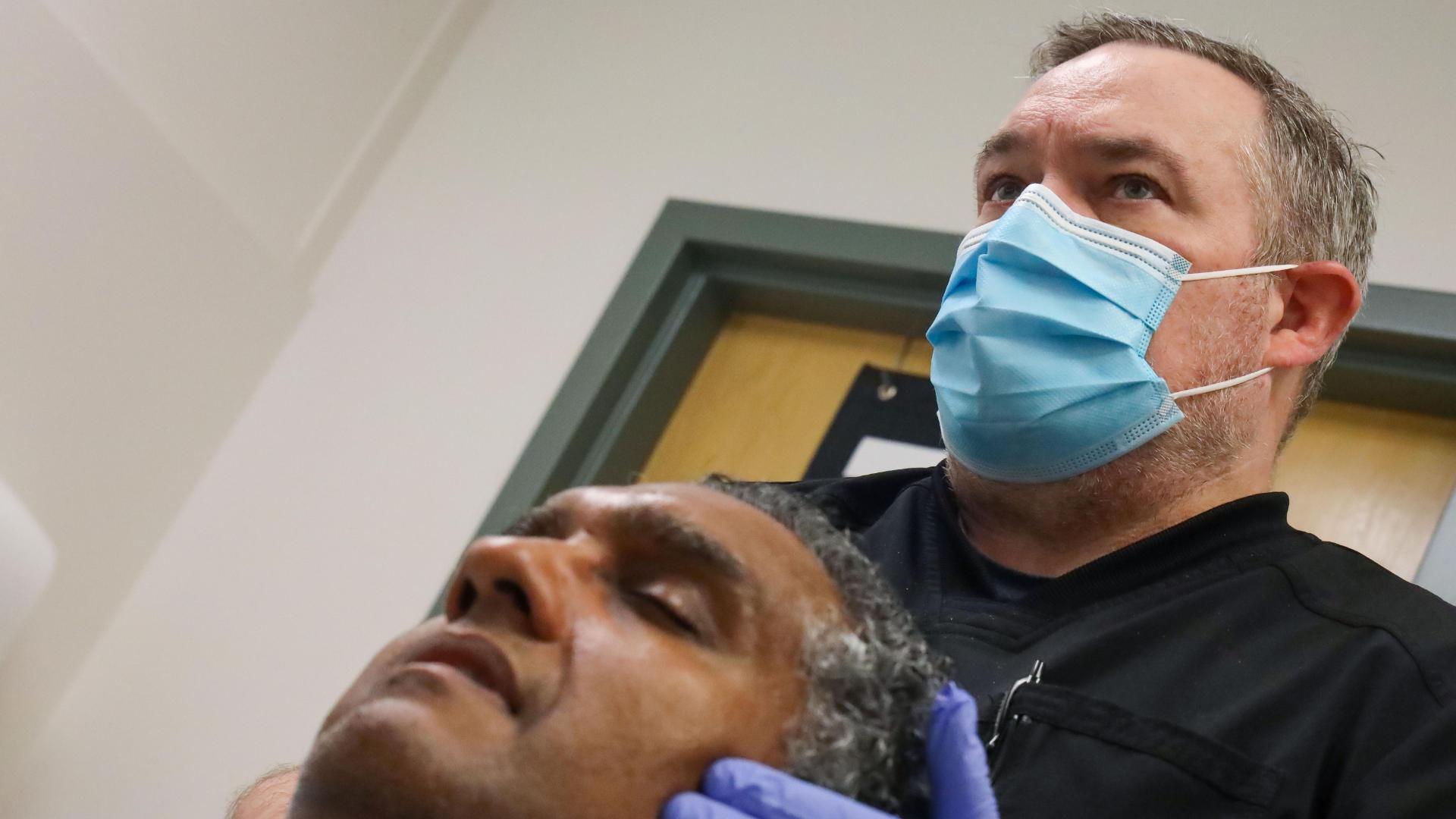 Shawn McMahon, D.D.S., M.S., (left) listens carefully as a patient explains his pain.
Shawn McMahon, D.D.S., M.S., (left) listens carefully as a patient explains his pain.How VCU's Orofacial Pain Clinic was ahead of the curve
This article was originally featured in the Summer 2023 edition of Dentistry magazine, published by the school’s Office of Development and Alumni Relations.
No sooner had the VCU School of Dentistry expanded its Oral Medicine Clinic to include Orofacial Pain than the burgeoning wholistic diagnostic science became nationally recognized in the U.S.
Orofacial Pain was named the 12th dental speciality by The National Commission on Recognition of Dental Specialties and Certifying Boards in March 2020. Orofacial pain specialists have been seeing patients at VCU since November 2019.
“We were ahead of the curve with the opening of our clinic,” says Shawn McMahon, D.D.S., M.S., associate professor at the VCU School of Dentistry, and orofacial pain specialist. “That opening helped set the stage for access to care during the pandemic. The patients we serve come to us with complicated chronic pain conditions including burning mouth syndrome, post-traumatic peripheral neuropathies, a variety of headaches, neuralgias, sleep disordered breathing, such as obstructive sleep apneas, and, of course, temporomandibular disorders. Most, if not all of them, are referrals. And all of them are impacted by a lesser quality of life.”
During the first half of 2023, VCU orofacial pain practitioners saw three times as many patients each month compared to the clinic’s first year. It’s not hard to see why.

“With only 260 to 270 board certified specialists serving approximately 10 million people across the country with chronic orofacial pain, the increase in our patient referrals comes as no surprise,” according to McMahon. “In an ideal world, there’d be one of us in every clinic. We’d all work to assess the patient and say, ‘Here’s what we can do’.”
In McMahon’s ideal clinic, modeled after similar clinics he established while in the military, teams work alongside primary care physicians, physical therapists, behavioral health specialists, sleep specialists, and more. The result is a multidisciplinary treatment plan that benefits the whole patient.
“Our work is a perfect example of VCU’s commitment to interprofessional collaboration,” says McMahon. “It impacts the quality of care for all of our patients and, in particular, for those who have experienced months and even years of pain with no relief.”
Despite the bumps in the road caused by the pandemic, which hit shortly after opening, the relatively new clinic is building on its strong foundation of expanded services such as TeleHealth and Dental Sleep Medicine. A clinical senior selective course allows selected students to get advanced training in both orofacial pain and oral medicine.
Rotations for residents are also underway. Educating fellow health care providers, both medical and dental, about the VCU Orofacial Pain Clinic ultimately helps reach more patients throughout Virginia and the mid-Atlantic region. Clinic specialists are developing additional didactic coursework and lecture presentations, and working to expand empanelment in various medical and dental insurance plans to help reach more referral sources. All to maintain the uncompromising high quality standard of care VCU patients expect.